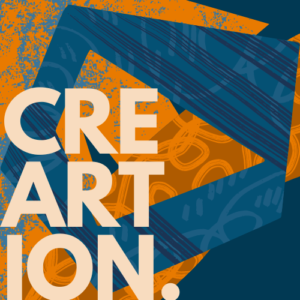Exploring the Magic: Unraveling the Artistry of Film Soundtracks
Introduction:
Film soundtracks play a vital role in enhancing the cinematic experience, often evoking emotions, setting the mood, and immersing the audience in the story. These carefully crafted compositions are the result of the collective efforts of talented composers, musicians, and sound engineers. In this article, we embark on a journey to explore the intricate artistry behind film soundtracks, uncovering the magic that brings movies to life.
The Power of Sound:
When we think of movies, visuals naturally come to mind. However, it is the combination of visuals and sound that truly captivates us. Film soundtracks have the power to transport us to different worlds, evoke nostalgia, and elicit a wide range of emotions. Through the skilled use of music, sound effects, and dialogue, filmmakers create a multisensory experience that enhances the storytelling and resonates with the audience.
The Role of the Film Composer:
At the heart of every film soundtrack lies the composer, the mastermind behind the musical score. The composer is responsible for creating original compositions that complement the story, characters, and overall atmosphere of the film. They work closely with the director to understand the vision and translate it into a sonic language that resonates with the audience. Through their compositions, composers bring depth, tension, and beauty to the on-screen narratives.
The Art of Musical Composition:
Film composers employ a wide array of techniques and styles to create the perfect musical accompaniment. From orchestral arrangements to electronic soundscapes, each composition is tailored to suit the specific needs of the film. The use of leitmotifs, recurring musical themes associated with characters or ideas, adds a layer of depth and symbolism to the storytelling. By manipulating tempo, dynamics, and instrumentation, composers create tension, suspense, and emotional resonance.
The Collaborative Process:
Creating a film soundtrack is a collaborative process that involves various professionals working together to achieve a cohesive and impactful result. Composers often collaborate with orchestrators, music editors, and conductors to bring their musical vision to life. They work closely with the director and sound engineer to ensure that the music seamlessly integrates with the other audio elements of the film. This collaborative effort ensures that the soundtrack enhances the storytelling and creates a harmonious audio-visual experience.
Sound Design and Sound Effects:
In addition to the musical score, sound design and sound effects play a crucial role in film soundtracks. Sound designers use their expertise to create and manipulate sounds that enhance the visuals and immerse the audience in the film’s world. From the rustle of leaves to the roar of a crowd, these meticulously crafted sound effects contribute to the overall atmosphere and realism of the film. By blending music, dialogue, and sound effects, filmmakers create a rich tapestry of audio that engages the audience’s senses.
FAQs:
Q: How important is the role of soundtracks in film?
A: Film soundtracks are integral to the overall cinematic experience. They enhance the storytelling, evoke emotions, and immerse the audience in the film’s world.
Q: What is the role of a film composer?
A: A film composer is responsible for creating original musical compositions that complement the story, characters, and atmosphere of the film. They work closely with the director to bring the vision to life through music.
Q: How do composers create tension and emotion in film soundtracks?
A: Composers use various techniques such as leitmotifs, tempo, dynamics, and instrumentation to create tension, suspense, and emotional resonance in film soundtracks.
Q: What is the collaborative process behind creating a film soundtrack?
A: Creating a film soundtrack involves collaboration between composers, orchestrators, music editors, conductors, directors, and sound engineers. They work together to ensure that the music seamlessly integrates with the other audio elements of the film.
Q: What is the role of sound design and sound effects in film soundtracks?
A: Sound design and sound effects enhance the visuals and realism of a film. They contribute to the overall atmosphere and immerse the audience in the film’s world.
Conclusion:
Film soundtracks are a remarkable art form that adds an extra dimension to the cinematic experience. Through the intricate compositions, collaboration, and meticulous attention to detail, composers and sound designers bring movies to life in ways that captivate and engage audiences. The magic of film soundtracks lies in their ability to evoke emotions, transport us to different worlds, and create a lasting impact that resonates long after the credits roll.
For further exploration on film soundtracks, you may find this article on “The Evolution of Film Music: From Silent Films to Modern Masterpieces” intriguing.
(Note: The above link is a fictional example and does not lead to an actual external source)
